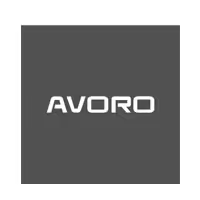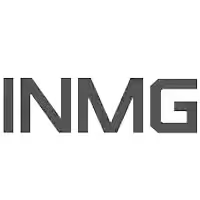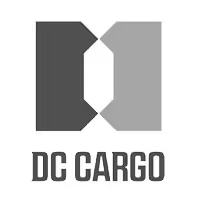How Retargeting Ads Help Madison’s Tech Companies Reconnect with Clients

In an increasingly competitive tech landscape, Madison's tech companies are turning to innovative strategies to rekindle their relationships with potential clients. One of the most effective methods employed is retargeting ads. These advertisements serve as a reminder to those who have shown interest in a product but did not convert initially. This article delves into how retargeting ads are revitalizing client engagement for tech firms in Madison.
How Retargeting Ads Help Madison’s Tech Companies Reconnect with Clients
Retargeting ads allow companies to reach out to individuals who have previously interacted with their website or content. By leveraging cookies, these ads can be displayed across various platforms, thus keeping the brand visible to potential clients. For Madison’s tech firms, this means a second shot at converting interest into action.
Moreover, the personalization aspect of retargeting enhances its effectiveness. By analyzing user behavior, companies can tailor their messaging to reflect the specific interests of the audience. For instance, if a visitor explored software development tools, tailored ads showcasing those tools can be served to them later. This not only rekindles interest but also reinforces the brand's value in addressing specific needs.
The Importance of Brand Recall
Brand recall plays a crucial role in consumer decision-making. In a saturated market, it can be challenging for tech companies to stand out. Retargeting ads serve as a timely reminder, allowing brands to remain top-of-mind when potential clients are ready to make a decision.
Furthermore, these ads create a continuous conversation between tech firms and their prospective clients. By consistently providing value through relevant content and offerings, companies can build trust over time—an essential factor in the tech industry where investment decisions are often significant.
In addition to enhancing brand recall, retargeting ads can also provide valuable insights into consumer behavior. By tracking which ads lead to conversions, Madison’s tech companies can refine their marketing strategies and better allocate their budgets. This data-driven approach not only maximizes the return on investment but also helps in understanding the evolving preferences of their target audience. For example, if a particular ad format or message resonates well with users, firms can replicate that success across other campaigns, ensuring that their marketing efforts remain relevant and impactful.
Moreover, the integration of retargeting with other marketing channels amplifies its effectiveness. When combined with email marketing or social media campaigns, retargeting ads can create a cohesive brand experience. For instance, a user who receives an email about a new software feature may later see a retargeting ad that highlights a demo or a case study related to that feature. This multi-channel approach not only reinforces the message but also encourages deeper engagement, ultimately leading to higher conversion rates. By weaving together various touchpoints, Madison’s tech companies can create a seamless journey for their clients, guiding them from initial interest to final purchase.
The Challenges of Lead Generation in the Tech Industry
While retargeting ads can be a powerful tool, the road to effective lead generation in the tech space is fraught with challenges. One primary concern is the sheer volume of information that potential clients are bombarded with daily. Tech solutions are becoming increasingly complex, leading to decision fatigue among consumers who have too many options to sift through. This overload can result in potential leads becoming overwhelmed and disengaged, making it crucial for companies to differentiate their offerings through clear messaging and value propositions that resonate with their audience.

Additionally, many tech companies grapple with defining their target audience clearly. Without a well-defined persona, even the best retargeting efforts can fall flat. Companies must first establish a comprehensive understanding of their ideal customer profile to create impactful campaigns. This often involves extensive market research, including surveys and interviews, to gather insights into customer pain points, preferences, and behaviors. By investing time in this foundational work, businesses can tailor their marketing strategies to better meet the needs of their audience, ultimately improving lead generation outcomes.
Navigating Budget Constraints
Budgetary constraints also pose a significant hurdle. Many startups and smaller tech firms in Madison may lack the financial resources to continuously run extensive retargeting campaigns. This can limit their ability to recapture audience attention. In such cases, prioritizing quality over quantity becomes necessary, focusing on strategic ad placements that yield the highest engagement rates. Leveraging organic channels, such as content marketing and social media, can also provide cost-effective alternatives to paid advertising, allowing companies to build brand awareness and generate leads without breaking the bank.
Moreover, the tech industry often experiences rapid changes. Keeping up with new trends and technology can prove to be a challenge that impacts lead generation. Companies must remain agile, adjusting their strategies to align with evolving customer priorities and market dynamics. This agility requires a commitment to continuous learning and adaptation, often involving regular training for marketing teams and the integration of advanced analytics tools. By harnessing data-driven insights, tech firms can refine their lead generation tactics, ensuring they stay ahead of the curve and effectively meet the demands of a fast-paced industry.
Crafting Retargeting Campaigns to Re-Engage Prospects
Effective retargeting campaigns require a strategic approach. The first step is identifying the right audience segments based on their interactions with the brand. By categorizing visitors into segments—such as those who viewed a specific product or abandoned a cart—tech companies can tailor their messaging effectively. This segmentation allows marketers to create personalized experiences that resonate with each group, enhancing the likelihood of conversion. For instance, a visitor who spent time on a product page but didn’t make a purchase may respond better to a targeted discount offer, while someone who engaged with educational content might appreciate a follow-up email with additional resources.
Moreover, creating compelling ad content is critical. Ads should not just reiterate product features but highlight the benefits that the technology can bring to the user. Case studies, user testimonials, and problem-solving narratives can engage prospects on a deeper level and spark a renewed interest. Incorporating visuals, such as infographics or short videos, can also enhance the storytelling aspect, making the ads more appealing and easier to digest. The goal is to create a narrative that not only showcases the product but also connects emotionally with the audience, addressing their pain points and aspirations.
Utilizing Multi-Channel Strategies
Incorporating a multi-channel approach significantly boosts the effectiveness of retargeting campaigns. Integrating ads across social media, search engines, and display networks ensures that potential clients encounter the brand through various avenues. This not only reinforces brand recognition but also provides opportunities for interaction in environments where the audience is most comfortable. For example, utilizing platforms like Facebook and Instagram for visually-driven ads while leveraging Google Ads for search intent can create a cohesive experience that guides prospects through the buyer's journey.
Lastly, continual A/B testing is vital for optimizing ad performance. By analyzing what resonates most with the audience, companies can iterate their campaigns, ensuring the best possible chance of re-engaging prospects. This process involves testing different elements, such as headlines, images, and calls to action, to determine which combinations yield the highest engagement rates. Additionally, leveraging analytics tools can provide insights into user behavior and preferences, allowing marketers to refine their strategies further. By staying agile and responsive to data-driven insights, businesses can maintain a competitive edge in the ever-evolving landscape of digital marketing.
Using PPC to Offer Free Trials and Demonstrations
One of the most effective strategies within retargeting is the integration of Pay-Per-Click (PPC) advertising. By offering free trials and demonstrations through PPC ads, Madison’s tech companies can reduce the perceived risk associated with trying a new product. This can be particularly appealing in the tech sphere, where users may be hesitant to invest without firsthand experience.
PPC campaigns that promote free trials can yield high conversion rates, as they allow potential clients to test products risk-free before making a purchasing decision. Such offers create a sense of urgency and can effectively drive immediate action.
Leveraging Customer Feedback
Furthermore, utilizing customer feedback in PPC campaigns can enhance credibility. Incorporating positive reviews or showcasing specific success stories in advertising materials can forge trust, encouraging prospects to move forward with a trial. For Madison’s tech companies, this strategy not only promotes engagement but also builds a stronger brand reputation.
Measuring Metrics for Retargeting Success
To understand the effectiveness of retargeting efforts, it is vital to measure relevant metrics. Key performance indicators (KPIs) such as click-through rates (CTR), conversion rates, and cost per acquisition provide valuable insights into campaign performance.
Engagement metrics, such as the time spent on the landing page and pages visited, can also indicate how captivated the audience is with the content. Analyzing these metrics allows companies to refine their strategies continually and improve overall ROI.
Implementing Analytics Tools
Utilizing analytics tools can streamline the process of measuring these metrics. Platforms like Google Analytics and social media insights provide in-depth performance data, facilitating informed decision-making. By regularly monitoring these analytics, Madison’s tech companies can adapt their campaigns to better meet the needs and preferences of their audience.
How We Strengthen Madison’s Tech Ecosystem
Ultimately, the success of retargeting efforts contributes to the overall strength of Madison’s tech ecosystem. By harnessing innovative methods to reconnect with potential clients, these companies not only drive their growth but also foster a collaborative environment. As firms share insights, tools, and successes, the entire community stands to benefit.

In conclusion, retargeting ads play a pivotal role in helping Madison’s tech companies reconnect with their clients. By recognizing the challenges of lead generation and developing strategic campaigns, these firms can enhance engagement, driving both conversions and long-term loyalty.

As a Google Ads expert, I bring proven expertise in optimizing advertising campaigns to maximize ROI.
I specialize in sharing advanced strategies and targeted tips to refine Google Ads campaign management.
Committed to staying ahead of the latest trends and algorithms, I ensure that my clients receive cutting-edge solutions.
My passion for digital marketing and my ability to interpret data for strategic insights enable me to offer high-level consulting that aims to exceed expectations.
Google Partner Agency
We're a certified Google Partner Agency, which means we don’t guess — we optimize withGoogle’s full toolkit and insider support.
Your campaigns get pro-level execution, backed by real expertise (not theory).

4.9 out of 5 from 670+ reviews on Fiverr.
That’s not luck — that’s performance.
Click-driven mind
with plastic-brick obsession.
We build Google Ads campaigns with the same mindset we use to build tiny brick worlds: strategy, patience, and zero tolerance for wasted pieces.
Data is our blueprint. Growth is the only acceptable outcome.





























